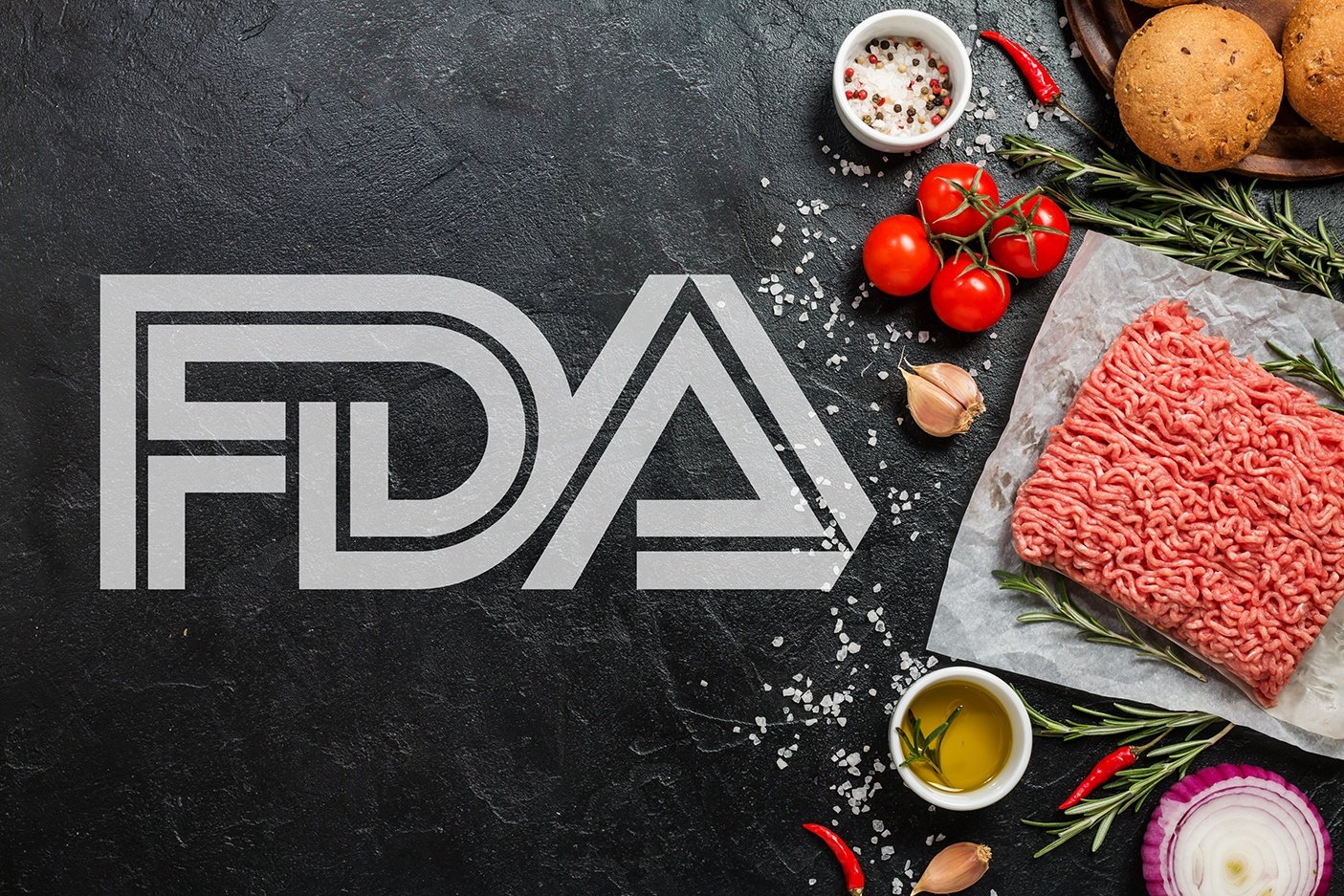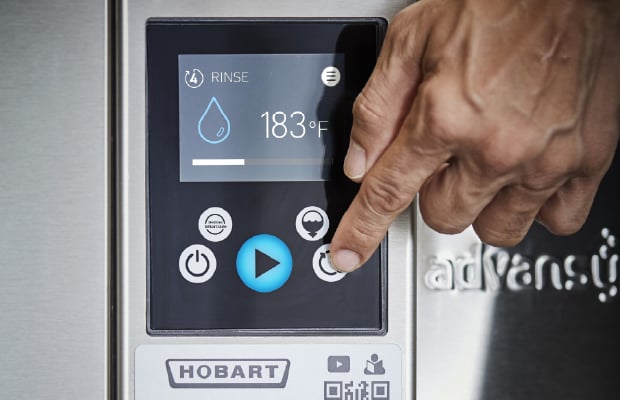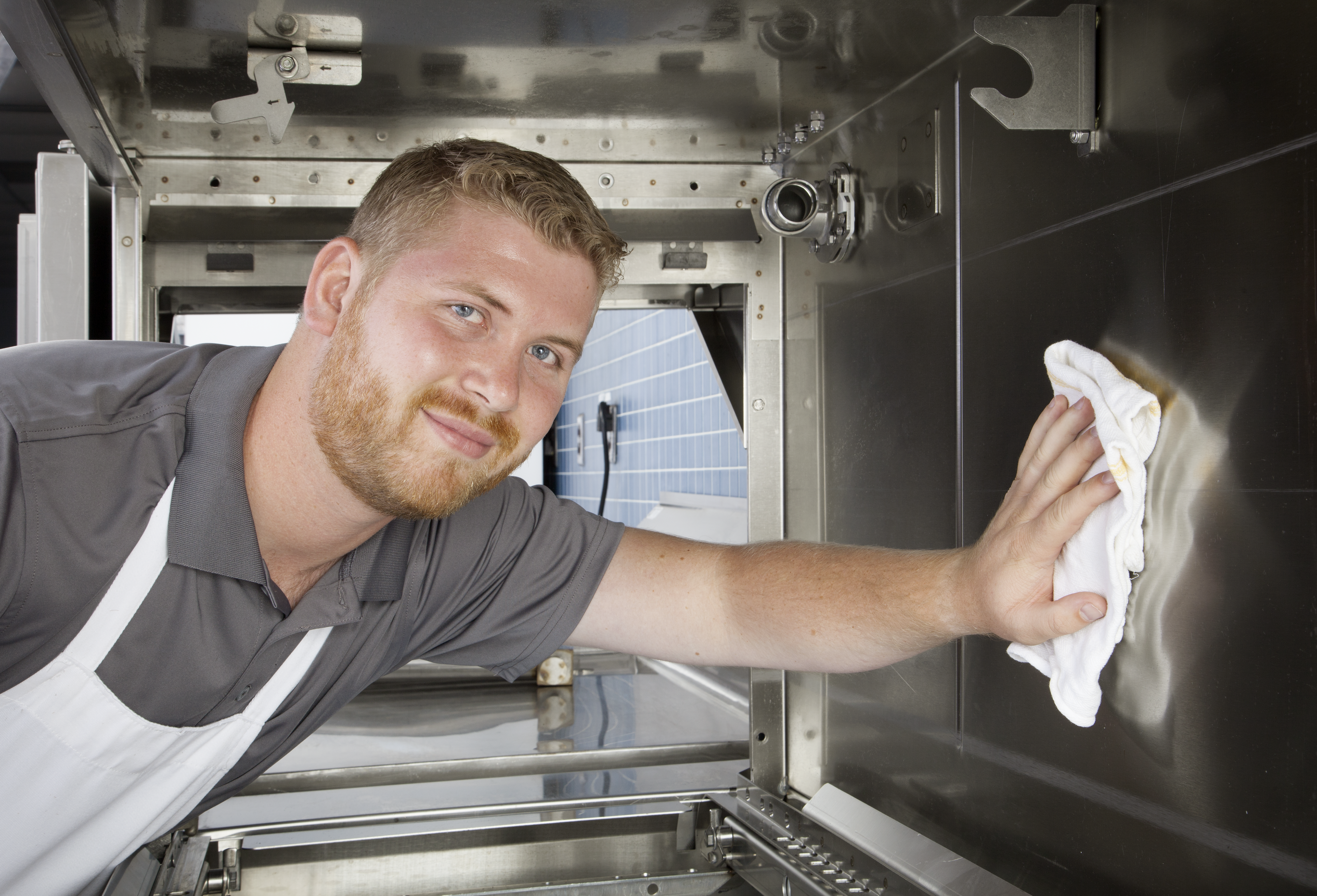Along with your local health authorities, the FDA Food Code has a direct effect on every foodservice operation. Find out what you need to know to avoid any operational problems in your dishroom.
Commercial Dishwashing Standards
While you might not have any day-to-day contact with the U.S. Food and Drug Administration (FDA), its Food Code has an effect on your foodservice operation. The Code is a massive document of more than 600 pages, covering everything from proper food storage procedures to the installation of plumbing systems. Michael Kohler, Associate Technical Director – Food Equipment for the testing and certification organization NSF International, calls it “the top tier for requirements or guidelines” when it comes to equipment regulations because it contains “consensus standards for various types of equipment to be used in commercial food establishments.”
The FDA Food Code sets the national standard but the more direct, everyday concern for operators is dealing with local health authorities and the differing codes in each municipality. According to Kohler, “many jurisdictions adopt the Food Code into their [own] code.” While the local authorities may certainly make more specific additions or variances to their codes — or even if they write their own code — for the most part it will be in alignment with the standards set forth in the FDA Food Code.
So realistically, how can operators ensure they’re compliant with the FDA Food Code? One way is by choosing equipment that is certified by a standards organization such as NSF. The certification organization might be thought of as the “middleman” in the chain between the FDA code and local health authorities.
The NSF/ANSI standards for commercial warewashing equipment (3-2017) “align with the guidelines indicated in the Food Code [and] in many cases are more detailed,” Kohler says. “So we like to say that products that meet NSF standards would meet or exceed the requirements of the Food Code” and thus meet most local requirements as well. NSF also keeps a close eye on any changes in the FDA Food Code to ensure that their certification standards are updated to be in harmony with the Code.
Always Buy Certified
Why is it important that operators select equipment that is certified by NSF or another accredited agency? Kohler says that most local authorities “don’t have expertise in some of the nitty-gritty requirements of equipment. Typically, they don’t want to be bothered with how something is built or designed.” So they treat the certification as sort of a “shorthand” for approval. If the equipment “has a certification mark on it from, say, NSF, they look at the equipment and say, ‘Somebody else is telling me this is OK.’ It’s been evaluated and tested by NSF and they’re educated on the fact that it meets or exceeds the Food Code,” Kohler says.
“All Hobart commercial dishwashers carry the NSF certification,” says Joel Hipp, Engineering Manager for Hobart Warewashing Division. “That means that when the machine is operated and maintained properly, it will meet all the requirements mandated by the FDA Food Code.” Besides helping operators comply with their local health codes, Hobart dishwashers use the latest technologies that deliver clean, sanitized dishes while saving water, energy, chemicals and labor. This is just part of the reason they’ve been named “Best in Class” by Foodservice Equipment & Supplies magazine for 17 years running and recognized as an Energy Star Partner of the Year - Sustained Excellence for over 10 years.





.png)


%20proc%20%20(1).jpg)


